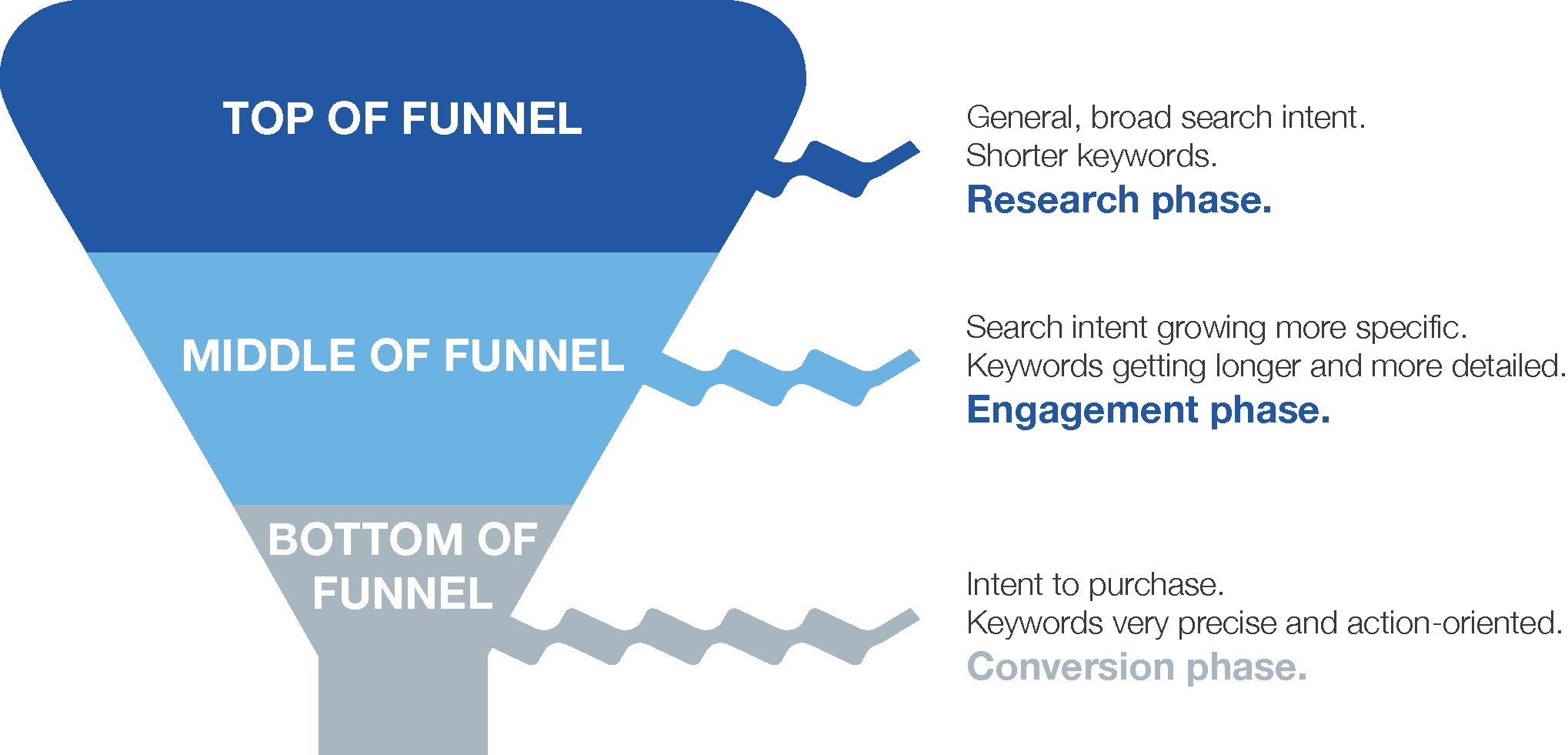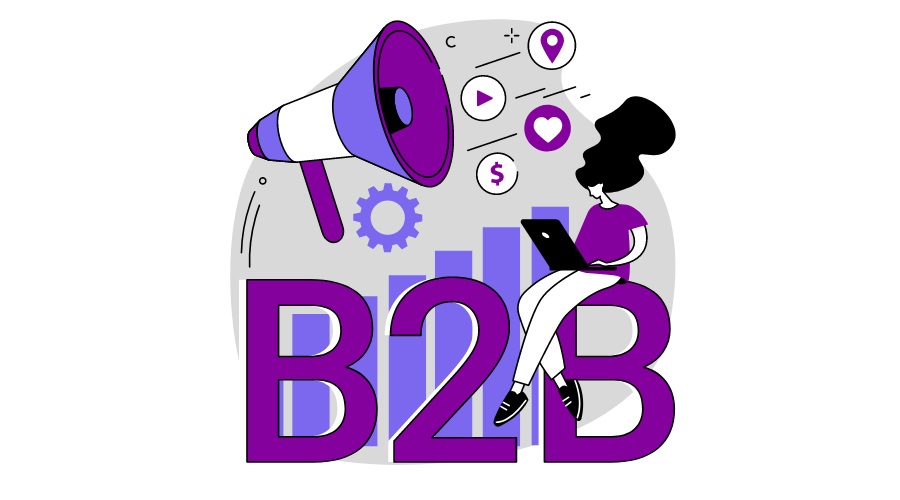In the dynamic landscape of higher education, universities, colleges, and course providers encounter distinctive challenges in navigating the digital realm. As institutions strive to showcase their offerings and foster meaningful connections with prospective students, faculty, and stakeholders, the role of search engine optimisations (SEO) becomes pivotal. Here at Ambire, we delve into 7 higher education SEO tips, shedding light on strategies tailored to address the unique challenges faced by academic institutions. From the importance of online visibility as a beacon for attracting diverse stakeholders to the specific nuances of optimising for university-centric events like open days, this helpful guide aims to empower universities, colleges, and course providers with the insights that extend beyond traditional higher education SEO practices.
Before we delve into it, to understand the key hurdles and pain points in growing a university or course provider, see our landing page on SEO For Higher Education, Universities & Colleges.
1.Strategic Keyword Planning For Evergreen & Seasonal, University Events
When it comes to SEO for higher education, strategic keyword planning is a cornerstone for optimising a university’s online presence, encompassing both evergreen content and specific events.
Evergreen Keywords
In university website SEO, the goal with evergreen content is to leave a lasting impression by integrating keywords and information always in demand. This involves tailoring content to align with the institution’s core offerings, academic programs, and overall mission. For instance, a degree program like a Bachelor’s in Business Administration is also referred to as a BBA, and should have a landing page that reflects alternative names and descriptions to broaden visibility among relevant audiences.
Seasonal Event Keywords
Concurrently, for university events, particularly those like open days and career-related seminars, it is crucial to integrate event-specific keywords that resonate with prospective students and attendees.
2. Find Content Gaps & Have A Solid Content Plan To Target Both Evergreen & Seasonal Search Queries
Effective SEO optimisation is a crucial aspect for improving a university or college’s digital visibility, whether for evergreen content or specific occasions, such as open days, career fairs, or academic symposiums.
Evergreen Content
In the context of universities, colleges and course providers, evergreen content refers to information that remains relevant and valuable over an extended period of time. Unlike time-sensitive or event-specific content, evergreen content remains useful to audiences consistently, regardless of when it is accessed. The type of content tends to cover enduring topics, foundational knowledge, and fundamental aspects of the institution that do not change frequently.
Why Is Evergreen Content Important?
Evergreen content forms the bedrock of a website’s higher education SEO strategy. It offers long-term results on investment by capitalising on evergreen user queries and interests that are always in demand. A university’s evergreen content or “money pages”, such as their content on courses, and career opportunities should be properly optimised to maintain a steady stream of search queries and user engagement. This traffic will come from prospective students, current students, and other stakeholders seeking reliable information about the institution.
It is paramount that the below evergreen content is optimised for SEO:
- Course & Career Information: Evergreen content includes comprehensive information about specific courses, including curricular, potential specialisations, and career pathways. This type of content is crafted to rank well for relevant course and career-related keywords, ensuring prospective students can easily find information about academic offerings and potential outcomes.
- Program Descriptions: Detailed and timeless information about academic programs, including course outlines, requirements, and potential career paths for graduates.
- Admissions Information: General admissions criteria, application procedures, and tips for prospective students that remain consistent across multiple admission cycles.
- Campus Facilities: Information about campus facilities, resources, and services that don’t undergo frequent changes, such as libraries, sport facilities, and student centres.
- Faculty Profiles: Biographies and achievements of faculty members, which provide a stable overview of the academic expertise within the university or college.
FAQs For University Or College Evergreen Content
Whether it is for SEO for universities, colleges or course providers, leveraging frequently asked questions (FAQs) in both evergreen and event-related content plays a pivotal role. FAQs not only address the immediate queries of users, but also contribute to enhanced search visibility. By including commonly asked questions related to careers, academic programs, and study opportunities, universities or course providers can better align their content with the specific needs and inquiries of their target audiences. This reinforces their authority and relevance in the digital landscape.
- For instance, address popular and common queries about the university’s policies, campus life, and academic offerings.
- Furthermore, incorporate popular FAQs about career prospects post-graduation or specifics about study abroad programs that not only enhances user experience, but aligns content with the nuanced queries potential students often search for. This bolsters the website’s university SEO, and digital presence in a competitive landscape.
Mission & Values
For branding purposes, when optimising headers, title tags, meta descriptions, and page content, the focus also lies in capturing the enduring essence of the institution. This provides a cohesive brand and narrative that intertwines evergreen themes with the university’s overarching mission.
Seasonal Content
In the context of universities, colleges and course providers, seasonal content refers to information that caters to specific periods, events, or time-sensitive topics. Unlike evergreen content, which maintains its relevance over an extended period, seasonal content is designed to address the immediate and temporary interests of the audience during specific times of the year or particular events.
Why Is Seasonal Content Important?
Seasonal content complements a website’s higher education SEO strategy by capitalising on timely trends, events, or academic calendar milestones. While evergreen content forms the foundation, seasonal content adds a dynamic element, keeping the website current and engaging. Universities should strategically plan and optimise their seasonal content to align with the specific needs and interests of their audience during targeted periods.
It is crucial to optimise the following seasonal content for SEO:
- Campus Events Such As Open Day: Highlight seasonal campus events, festivals or celebrations. Optimise content to attract local and campus-wide interest, contributing to a vibrant and engaged community.
- Event Specific Information: Tailor this content to address the details and highlights of specific events, such as open days, career fairs, or academic symposiums. Optimise headers, title tags, and meta descriptions to capture the essence of these events, and attract relevant searches.
- Application Period Guidance: Provide information related to application deadlines, admission requirements, and tips specifically tailored to the admission periods. This ensures that prospective students find timely and relevant information during crucial application cycles.
- Specialist Training Programs: If the institution offers seasonal or short-term training programs, optimise content to attract participants during specific enrollment periods, emphasising the unique benefits of these programs.
- Scholarship Opportunities: Seasonal content can include information about scholarship opportunities with application periods, eligibility criteria, and tips for applying. Optimising this content ensures visibility to students actively seeking financial assistance during specific times.
FAQs for Seasonal Events
In the dynamic world of university events, leveraging on strategic FAQ search terms is instrumental in navigating seasonal tides. For instance, during open days, prospective students often seek clarity on admission processes, campus facilities, and extracurricular opportunities. Crafting event-specific FAQs that address these queries not only aids in providing concise and relevant information, but also enhances the event’s visibility in search engine results. Additionally, for seasonal gatherings like career fairs or study-abroad expos, anticipating and answering questions about participating companies, available internships or application procedures becomes paramount. By proactively addressing these concerns within your SEO for higher education and event content, universities not only streamline the user experience but also elevate the event’s digital footprint. The strategic integration of popular FAQs, tailored to the nuances of each seasonal event, ensures the university’s online presence aligns seamlessly with the evolving needs of its diverse audience.
Mission & Values Alignment
While branding seasonal content, optimising headers, title tags, and meta descriptions, and page content remains essential to capture the essence of the institution during specific times. This approach in SEO for higher education ensures a cohesive brand narrative that aligns with the university’s overarching mission, while catering to the dynamic and evolving interests of the audience during distinct seasons and events.
3. Leverage Local SEO For Campus Visibility
In the realm of SEO for colleges, enhancing campus visibility is crucial, and from our digital marketing experience, we know that leveraging local SEO is a powerful tool in achieving this goal. Universities and colleges can significantly benefit from emphasising the importance of local SEO strategies.
- Optimise Google Business Profile Listings
Ensure the university or college’s Google Business Profiles are complete and accurate. To optimise your local SEO for education, utilise its features to promote campus events, programs, and highlights. Incorporate keywords relevant to the institution, and its offerings for local search.
- Event Promotion Through Local SEO
Leverage local higher education SEO strategies to promote campus events effectively. Incorporate location-specific keywords in event descriptions, and promotional materials. Utilise online platforms to maximise event visibility within the local community.
- Encourage User-Generated Content (UGC)
To differentiate and amplify your higher education SEO from other universities, increase your efforts in fostering a sense of community by encouraging students, faculty, and attendees to create and share content related to campus events. Utilise social media platforms and event hashtags to aggregate user-generated content. Showcase UGC on the university’s website and social media channels to highlight the vibrant campus life.

4. Create Compelling Content For Event Promotion
High quality, event-specific content in event promotion within higher education plays a pivotal role in attracting and engaging prospective students and attendees.
-
Craft Engaging Content For Open Days
Develop compelling blog posts, news articles and multimedia content tailored specifically for open days, admission events, and campus tours. Ensure that the content goes beyond mere information. Think about how you can stand out amongst your competitors. Aim to captivate the audience’s attention and spark interest.
-
Utilise Storytelling Techniques
When it comes to your content strategy and marketing calendar, embrace storytelling to connect with prospective students and attendees on a deeper level. Weave narratives that resonate with the aspirations and interests of the target audience, creating a more memorable and impactful experience.
This could include engaging faculty and staff to incorporate their perspectives and insights into the content. Faculty testimonials or insights can provide a unique and authoritative voice that resonates with potential students.
-
Include Interactive Content
Incorporate interactive elements, such as quizzes, polls, or virtual campus tours to engage the audience actively, boosting engagement on the website and social media platforms. Encourage participation and feedback to make the content more dynamic and memorable.
-
Set Up A Feedback Mechanism
Incorporate a feedback mechanism to gather insights from previous college events, allowing continuous improvement in content creation for future promotions.
5. Promote Events Through Backlink Strategies
When it comes to the competitive field of higher ed SEO, Backlinks cannot be overlooked. They play a pivotal role in enhancing the visibility and credibility of event promotions for universities, colleges, and course providers. They serve as endorsements from external sources, contributing to higher search engine rankings.
Acquire Backlinks From Event Partners, Local Media & Educational Network
- Develop a solid strategy to acquire backlinks from event partners, such as sponsors, collaborators, and participating organisations.
- Forge partnerships with local media outlets to secure coverage and backlinks for event-related articles or press releases.
- Leverage educational networks, including alumni associations and academic affiliates, to obtain backlinks that reach a broader audience.
Set Up Google Alerts To Monitor Unlinked Brand & Event Mentions
- Monitor published news articles, blogs, and other types of content to capture a list of unlinked brand and event mentions.
- Outreach to these media organisations, local newspapers, and blog websites to acquire an additional backlink from these brand / event mentions.
Avoid Common Pitfalls In Event-Related Link Building
- Ensure that backlinks are obtained from reputable and relevant sources to maintain the credibility of the institution.
- Avoid excessive link building solely for quantity, focusing instead on quality and relevance to the event and the university or course provider.
- Steer clear of black-hat SEO practices, as search engines personalise such tactics, potentially harming the overall online reputation of the institution.
Strategic Anchor Text Utilisation
- Optimise the anchor texts (text hyperlinks) in backlinks with relevant keywords related to the event and the university or college.
- Thoughtful anchor texts improve the SEO and context of the backlinks for search engines to better understand the relationship to the website.
Utilise Social Media Platforms For Backlink Promotion
- The relationship between higher education SEO and social media is paramount. Leverage social media channels to share event information, and encourage participants to share and link to official event pages.
- Social media shares and links indirectly improves your SEO by promoting the brand, and encouraging traffic to the website.
Monitor & Evaluate Backlink Performance
- It is a must to monitor your higher ed SEO performance of acquired backlinks.
- Implement tools to monitor the performance of acquired backlinks, and regularly assess the impact of backlink strategies on event visibility, and adjust tactics based on performance analytics.
By implementing these backlink strategies, universities and colleges can effectively amplify the reach of the event promotions, establish credibility within the academic community, and enhance their online presence in a competitive landscape.
6. Optimise For Mobile To Enhance Event Accessibility
We recognise the increasing reliance on mobile devices for accessing event information in the academic context.
Ensure Mobile-Friendly Event Pages
- A higher education SEO firm should prioritise the creation of mobile-friendly event pages to accommodate users on the go.
- Optimise layout, font sizes, and navigation to provide a seamless and intuitive experience for mobile users.
Test & Improve Mobile Responsiveness
- Conduct thorough testing of event pages across various mobile devices and screen sizes.
- Promptly address any issues identified during testing to enhance mobile responsiveness.
- Regularly update and refine mobile optimisation strategies based on user feedback and evolving technological trends.
Enhance User Experience For On-The-Go Users
- Consider the user experience of individuals accessing event information while on the move.
- Streamline content for mobile consumption, emphasising key details and making it easy for users to find relevant information quickly.
Implement Mobile-Friendly Features
- Utilise mobile-friendly features, such as click-to-call buttons, interactive maps, and easy registration forms to facilitate user engagement.
- As page speed plays a factor in SEO for colleges and universities, optimise images and multimedia content to ensure fast loading times on mobile devices.
Responsive Design For Various Devices
- Implement responsive web design principles to ensure event pages adapt seamlessly to different screen sizes and resolutions.
- Cater to the diversity of devices by the university or college community, including smartphones, tablets, and other mobile devices.
- By prioritising mobile optimisation for event pages, universities and colleges can effectively reach and engage with their target audience, acknowledging the prevalent use of mobile devices in accessing information. This approach ensures that event details are readily available and accessible to individuals, fostering a positive and user-friendly experience.
7. Monitor Evergreen & Event-Specific SEO Performance
Effective monitoring of evergreen and event-specific higher education SEO performance is paramount for successful online visibility and engagement. This process involves harnessing analytics to make informed decisions, and optimise strategies continuously.
Here some key points to consider:
Introduction To Event-Specific SEO Analytics
- Understand the unique dynamics of event-specific SEO analytics, recognising that optimising for events requires tailored strategies.
- Utilise analytic tools to track and measure the performance of event-related pages and content.
Set KPIs For Event Success
- Establish key performance indicators (KPIs) aligned with the goals of university events, such as open days or academic conferences.
- Measure success through metrics like page views, sign-ups, and engagement to gauge the effectiveness of SEO efforts.
Monitor Page Views
- Track the number of views on event pages to assess the level of interest and online traffic generated by SEO strategies.
- Analyse which are most popular, allowing for targeted improvements and content optimisations.
Track Sign-Ups & Registrations
- Monitor the conversion of website visitors into event participants by tracking sign-ups and registrations.
- Evaluate the effectiveness of call-to-action elements and registration processes to enhance user experience.
Measure Engagement Metrics
- Gauge user engagement through metrics like time spent on event pages, interaction with content, and social media shares.
- Identify the most engaging aspects of the event content, and leverage this information for future optimisations.
Making Data-Driven Adjustments
- Utilise insights from analytics data to make informed, data-driven adjustments to SEO strategies.
- Implement changes based on user behaviour and preferences, ensuring continuous improvement in event-specific online visibility.
Ongoing Event Optimisation
- Embrace a proactive approach to ongoing event optimisation by regularly reviewing and refining SEO tactics.
- Stay adaptable to changes in user behaviour, search engine algorithms, and industry trends to maintain effective online event promotion.
- By prioritising the monitoring of evergreen and event-specific SEO performance and employing data-driven adjustments, a higher education institution can enhance its online presence. This will attract a broader audience to events like open days and admission events, and ultimately drive leads to the website. Prioritising performance monitoring and reporting will allow a university or college to continually refine its digital marketing strategies for optimal results.
Ensure Your University Or College’s Success By Nailing Your SEO Plan
By developing a solid SEO strategy for evergreen and seasonal content, leveraging on local SEO tactics, and optimising the mobile experience for open days, your higher education institution is poised to maximise their digital impact and attract a wider audience.
Implementing these strategies is not just a suggestion, but a crucial step toward ensuring better higher education SEO, online visibility, and therefore leads. The seamless integration of SEO into your marketing efforts contributes to a cohesive and compelling narrative that reflects the value, strengths, and unique offerings of your university. As you embark on this journey to improve your university or college’s digital footprint, remember that effective SEO is not just a tool. It is a dynamic strategy that continually evolves to meet the competitive and ever-changing landscape of the digital world.





